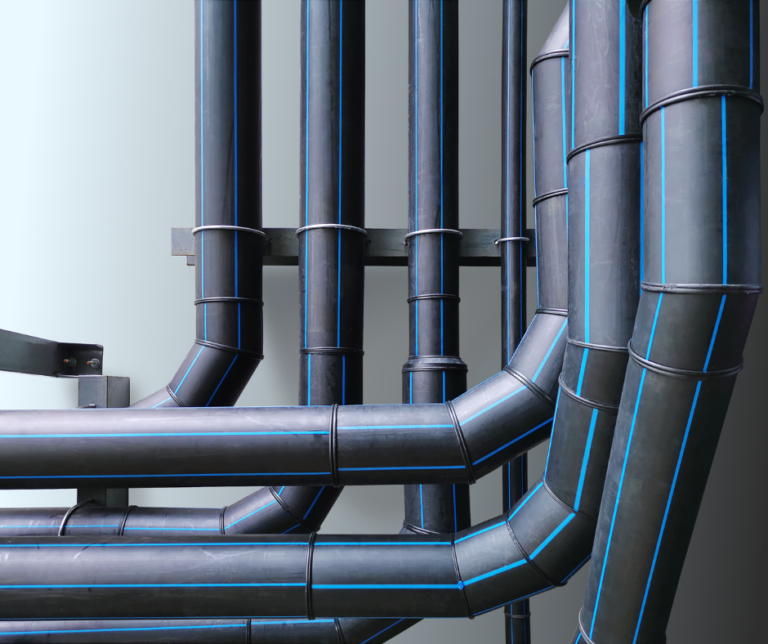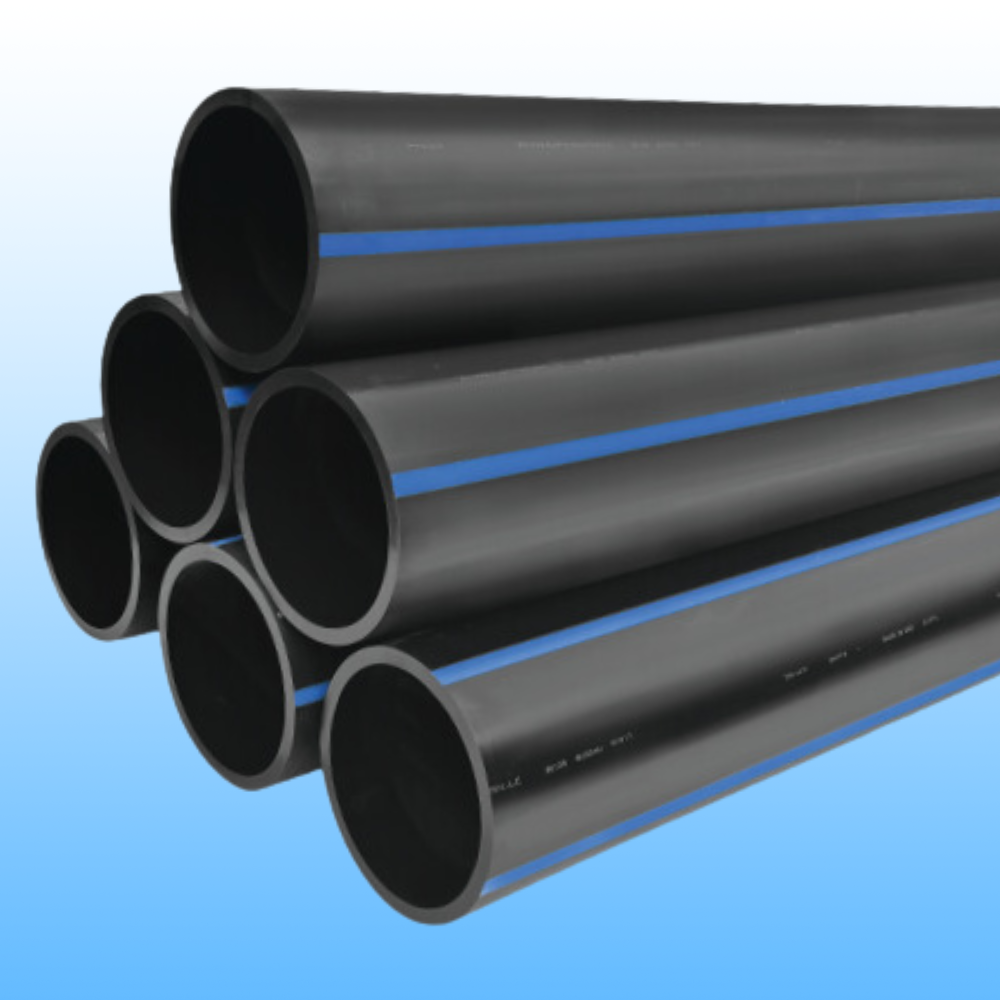A Comprehensive Guide to the Different Uses of HDPE Pipe in Building And Construction and Sector
HDPE pipelines have actually become an essential element in contemporary building and construction and industrial applications. Their unique residential or commercial properties, such as resistance to deterioration and lightweight layout, make them suitable for a wide range of usages. From water supply systems to farming watering, HDPE pipes provide services that enhance efficiency and sustainability. Understanding their varied applications is crucial for professionals aiming to optimize framework. What specific benefits do these pipelines give each industry?
Water Supply and Distribution Solutions
Water system and distribution systems are critical components of city framework, frequently counting on high-density polyethylene (HDPE) pipes for their sturdiness and efficiency. These systems transportation safe and clean water from treatment centers to consumers, making certain access and safety and security. HDPE pipelines are favored for their resistance to deterioration, chemicals, and extreme temperatures, which improves their longevity and reduces upkeep prices. Furthermore, their lightweight nature enables for easier installation and transport, making them perfect for different city and country applications.
The flexibility of HDPE pipelines allows them to be mounted in tight areas and around obstacles, minimizing the requirement for extensive excavation (hdpe pipe fittings Midland TX). In addition, their smooth indoor surface area minimizes rubbing losses, boosting water flow prices. As cities proceed to grow, the demand for trustworthy water supply systems raises, placing HDPE pipes as a sustainable remedy for modern-day infrastructure jobs. Their tested record makes them a recommended selection among engineers and metropolitan planners alike
Wastewater Management and Therapy
Efficient wastewater monitoring and therapy are crucial for maintaining public health and environmental top quality. HDPE pipes play an essential function in this process because of their toughness, resistance to corrosion, and capacity to stand up to extreme chemicals. These pipelines are generally utilized in different applications, including sewer system, stormwater drain, and wastewater therapy centers. Their light-weight nature promotes less complicated installment and transport, reducing labor expenses and time.
On top of that, HDPE pipelines have a smooth interior surface area that reduces rubbing loss, promoting effective circulation prices. They are also much less vulnerable to leaks and failures contrasted to traditional materials, making sure that pollutants are contained effectively. Their versatility permits for versatility in numerous soil conditions, making them ideal for diverse environmental setups. As sectors significantly prioritize sustainable methods, making use of HDPE pipes in wastewater monitoring systems straightens with goals for lowering ecological impact and boosting resource recuperation.
Agricultural Watering Solutions
In agricultural settings, efficient watering remedies are essential for maximizing plant returns and handling water resources. HDPE (High-Density Polyethylene) pipelines play an important role in modern irrigation systems due to their toughness, adaptability, and resistance to rust. Their capacity to stand up to high pressures makes them perfect for both surface area and subsurface watering applications, guaranteeing uniform water circulation across fields.
Farmers can utilize HDPE pipelines in drip watering systems, which provide water straight to plant roots, minimizing wastefulness and advertising healthy and balanced development. In addition, these pipes are lightweight and simple to install, minimizing labor prices and installation time. Their lengthy life expectancy and low maintenance needs further enhance their allure in farming methods.
HDPE pipelines are ecologically friendly, as they can be reused and do not seep damaging chemicals into the soil. This makes them a sustainable choice for farmers aiming to embrace green agricultural approaches while optimizing productivity.
Industrial Applications and Processes
Adaptability is a hallmark of HDPE pipes, making them vital in various industrial applications and processes. These pipes are widely made use of in chemical handling industries due to their exceptional resistance to a large range of corrosive substances. HDPE's lightweight nature, combined with high tensile stamina, enables easy setup and long-term efficiency popular atmospheres.
In the oil and gas industry, HDPE pipelines play an essential function in delivering hydrocarbons and gases, many thanks to their toughness and flexibility - hdpe pipe useful source in stock Midland TX. In addition, they are utilized in mining procedures for the transportation of slurry and other products, where conventional piping systems may stop working
In addition, HDPE pipes are progressively made use of in making facilities for supply of water lines and wastewater management. Their ability to hold up against extreme temperature levels and stress makes them ideal for a range of commercial procedures. Generally, HDPE pipelines add greatly to performance and security throughout diverse industrial applications.
Stormwater Administration and Drain Solutions
Stormwater management and water drainage systems are essential elements in city facilities, made to manage excess rainfall and minimize flooding dangers. High-density polyethylene (HDPE) pipes are progressively utilized in these systems because of their durability, flexibility, and resistance to corrosion. These pipes effectively deliver stormwater away from inhabited areas, lessening surface area runoff and protecting against waterlogging.
HDPE's light-weight nature promotes review easier installation, minimizing labor expenses and building and construction time. Additionally, its resistance to chemicals and environmental stressors assurances long life and integrity in various environments. In addition to traditional drain applications, HDPE pipes are likewise employed in innovative services such as eco-friendly framework, that includes rain gardens and absorptive sidewalks.

Frequently Asked Questions
Exactly How Does HDPE Pipeline Contrast to PVC Pipeline in Expense?
As a whole, HDPE pipe tends to be more pricey than PVC pipeline due to its improved durability and flexibility. Nevertheless, long-term cost factors to consider, such as maintenance and lifespan, might favor HDPE in specific applications.

What Is the Life Expectancy of HDPE Water Lines Under Numerous Conditions?
HDPE pipes typically have a life expectancy of 50 to 100 years, depending upon ecological conditions, installment methods, and use. Elements such as temperature, soil type, and direct exposure to chemicals can substantially influence their resilience.
Can HDPE Pipes Be Recycled After Use?
Yes, HDPE pipes can be recycled after use. The recycling process entails melting down the product, enabling it to be repurposed into brand-new items, thereby promoting sustainability and minimizing environmental influence linked with plastic waste.
Exist Any Specific Installment Difficulties With HDPE Pipelines?
Installment challenges with HDPE pipelines consist of proper jointing methods, making certain adequate trench conditions, and handling thermal expansion. In addition, competent labor is needed to deal with specialized equipment, which can complicate the setup procedure in different atmospheres.

What Qualifications Should I Seek When Getting HDPE Pipings?
When buying HDPE pipes, one need to look for accreditations such as ASTM, AASHTO, and ISO, which confirm top quality and conformity with sector criteria, image source ensuring resilience and efficiency in numerous applications. - Pipe Supplier American Plastics Midland